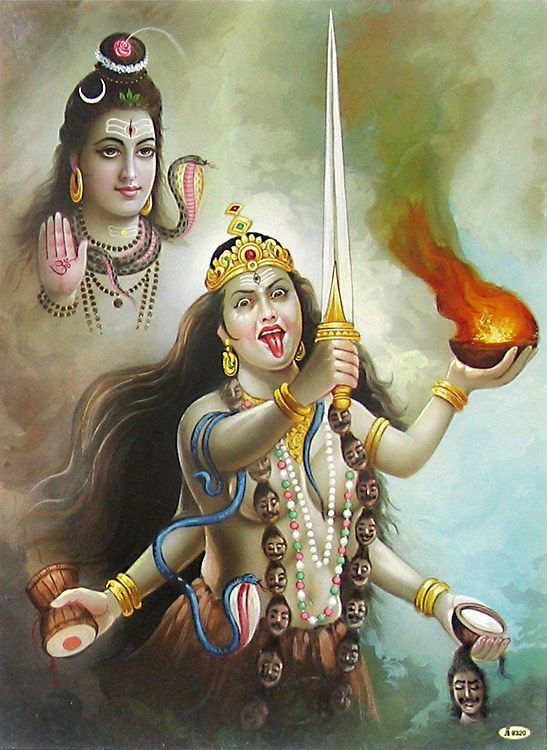
Hinduism is believed to be the most ancient religion in the world, originating in Central Asia and the Indus Valley. Followers of the faith refer to it as ‘Sanatana Dharma’, also known as the ‘eternal path’, and comprehend the percepts, as laid down in the holy texts, called the Vedas. The region believes in the concept, called Brahman, the Supreme Over-Soul from whom all the creation arises.
Hindu mythology is known for its various Gods and Goddesses, divine races, and mythical creatures. Every family or clan that follows Hinduism is known for worshipping a specific deity. They are called Kuladevata. Let us learn more about them:
What is Kuldevi & Kuldeva?
Kuladeva or Kuladevi is referred to as an ancestral tutelary deity in Hindu Dharma, who is believed to be the one to be worshipped, so as to persuade the divinity to take care of one’s clan (kula), family, and children from bad luck and misery. This is different from ‘Ishta-devata’ (personal tutelar) and village Gods and Goddesses.
The term ‘Kuladevata’ is stemmed from two words: Kula, implying clan and Devta, suggesting deity, and denotes divinities that are worshipped by specific families. The deity can be either male or female, animal or even an object such as the sacred stone, and it is said that rituals performed at the Kuladeva/Kuladevi shrine can prove to be fruitful to those who are genetically related to the one conducting the ceremony.
Hindu clans take a holy trip to the Kuladeva or Kuladevi temple to attain the blessings of the deity after auspicious events such as weddings, milestone birthdays, the birth of a child, thread ceremony, the first birthday of the baby and so much more.
Worshipping Kuldevatas in Indian States
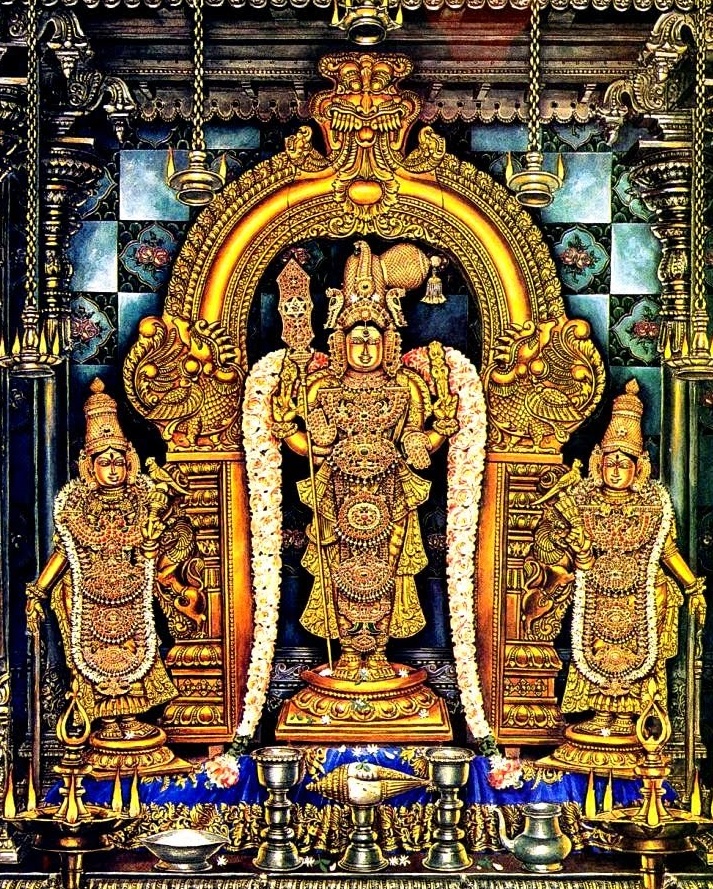
Kuladevatas are revered in numerous circles of Hinduism and Jainism. In the Maharashtra state, they are chiefly forms of Shiva and Shakti like Khandoba or Bhavani respectively. In states such as Gujarat and Rajasthan, these Gods and Goddesses are essentially the various incarnations of Parvati Devi, the consort of Lord Shiva, and are prayed to by various names by different families.
The Indian King Cobra (Nag) is also believed to be a renowned Kuladevata. It is referred to by numerous names like Nagadevata and Nagabaapji and is venerated by numerous Hindu, Jain and Kshatriya clans. A few Kshatriya sects also call themselves the ‘Nagavanshi’ or the descendants of the Naga. In Southern India, Balaji of Tirupati is considered to be one of the chief Kuladevatas.
In Kerala, prominent surnames such as Namboodiris, Ezhavas and Nairs have their own Kuladevatas. They are considered to be the deities who have been shielding their clan all this time. For the Brahmins, Kuladevatas were the who their ancestors performed ‘Upasanas’ (life-long devoted veneration) on. For Ezhavas and Nairs, it's not fully committed Upasana like that of Namboodiri brahmins, but they revere their family deities for their entire life. They build shrines for the Kuladevatas and perform specific pujas.
In the state of Andhra Pradesh, Goddess Vasavi Kanyakaparameshwari is believed to be the Kuladevi for the Arya Vyasa sect. As for Tamil Nadu, Goddess Kamakshi, Goddess Renukamba and Lord Murugan are considered to be the family deities among several others, for numerous Brahmin Iyers and also to Maravar and Vellalar. Goddess Bhadrakali is deemed to be the Kuladevi of the Nadars. Most of the Nadar settlements will have a shrine for Goddess Bhadrakali.
Goddess Angalaparameshwari is the Kuladevi for most of the Chettiars and Vellalar. Lord Narashima is the Kuladeva for Iyengar and Naidu clans. Venerating Kuladeva and Kuladevi is renowned amongst the Brahmins and Kshatriyas of Goa, Karnataka and Maharashtra.
The majority of the Kuladevata temples are seen in Goa, Shantadurga, Mahalakshmi, Nagesh, Mangesh, Ramnath and many others. The family deities are known to play a very prominent part amongst the Saraswat Brahmins, Daivajna Brahmins, and Konkani Kharvis. It has the potential to even supersede the role of the Ishta Devata.
Why are Kuladeva & Kuladevi different for everyone?
It is because not all Hindu clans are the same, so it makes sense that the Kuladeva and Kuladevi will also be different. For many years, to maintain its past and organize one’s community, Kuladevatas was set up in one place. That region was established as the original area of the people belonging to that clan.
Significance of Kuldevata
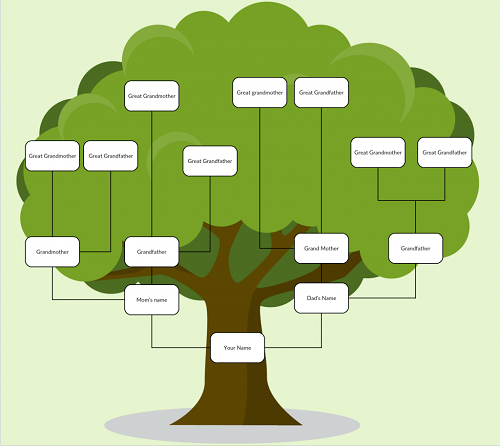
Family Tree:
In older days, it is said that the individual connected to a temple used to have a big book which used to have names, addresses, gotras of the people. This was similar to the Teerth Purohit or Pande sitting alongside the banks of the Ganges penning down the name of your clan and gotra. You may not be aware of the name of your great-grandfather’s grandfather but the names of your forefathers are recorded by the priests. This can help you be linked to your family tree.
Spiritual and Transcendental Power
Every Hindu family is believed to be connected to the descendent of some deity or sage. You can know which specific lineage an individual belongs to based on his/her gotra. For instance, if a person’s gotra is Bharadwaj, then he/she has descended from Bharadwaj Rishi. In this way, we will be able to get all the people related to Bharadwaj gotra in society. Apart from this, the ancestors of a clan begin venerating them by selecting them as an appropriate Kuladeva and Kuladevi and constructing temples for them in a specific area so that their family or community would be linked to them spiritually.
Tradition
Kuladevi or Kuladeva are observed as the protector of the family or lineage. They are the first worshipped deity of the family. Thus, it is essential to remember them before embarking on any task. Their impact is so significant that if you incur the wrath of the deity, no other God or Goddess can halt or decrease their malefic effects or harm with the exception of Lord Hanuman. There are numerous families who are not aware of their Kuladevata. This is owing to the fact that they no longer visit the place of their Kuladevi or Kuladeva and do not venerate them anymore. However, their forefathers and their deities are watching them.
Forgotten History
It is mentioned that as time passes, families shift from one place to another, change their faith, get displaced because of invaders or the untimely death of someone they knew. A lot of people have unfortunately forgotten the history of their clan or lineage and thereby overlook the deities of their clan.
It is also observed that if you stop revering to your family deity, you will not see a significant change for a few years. However, when the protection cycle of the divinities is eliminated, then you will begin noticing a lot of unfortunate incidents and accidents in the family. The clan will not see a lot of prosperity, rise in domestic disputes, disturbances, and unrest. The lineage will not be able to move forward and progress properly.
How to find out the name of your Kuldevata?
In order to seek the name of your family deity-
- You can ask the seniors and older people of your native family.
- You can ask the folks belonging to the same gotra or surname as you.
- You can inquire the same to your village priest or the kula purohit (the family priest).
- If you’re not able to figure out the name of your family deity even after asking everywhere, then you can continue worshipping Ishta devta (preferred deity). After some time, if you’re in luck, you can find out the name of your family deity through a knowledgeable person or a guru. You can recite ‘Shri Kuladevatayai Namaha’. After chanting, you may come across those who can tell you the name of your Kuladevata.
Difference between “Kula Devam” & “Ishta Devam”
Typically, Kula Devam is believed to be a God/Goddess/Demi-God who is worshipped by one’s family tradition and is passed down from one generation to the other. The male children of the family will carry on the tradition and pass it down to their children whereas the woman’s Kula Devam changes after her marriage. After the wedding, she will have to worship her husband’s Kula Devam. Every Hindu family has a Kula Devam and they are known to watch out for the clan and take care of them. There are two kinds of Kula Devam and it tends to be in the form of Ayya (Male) and Amma (Female).
On the other hand, ‘Ishta Deivam’ is considered to be the God/Goddess/Demi-God who is venerated because of the individual’s personal desire and will. One can pick their own Ishta Deviam based on their preference, compatibility, satisfaction, interest, or with the advice of their spiritual Guru or elders.
So, one can choose their own Ishta Deivam but this is not possible with Kula Deivam. Kula Deivam is believed to be the foremost deity in your family. After revering your Kula Deivam only, you can visit temples of the other Gods and Goddesses.
Interesting Facts about Worshipping Kuladeva and Kuladevi
- Among the Hindus, the family deity is generally regarded as the divinity that shields the family and the succeeding lineage/generations. One must never stop praying to the Kuladevata as it aids in having the family lineage develop and take powerful roots.
- Hindus strongly believe that when we visit the temple of our family deity, the souls of our ancestors will be filled with joy and bless us with a healthy and prosperous life.
- The temple of your family deity holds strong significance and importance since it is the amalgamation of infinite divine souls of your ancestors and their blessings that will help you in all your endeavours and be there for you in your time of distress.
- If an elderly individual is celebrating his/her 60th birthday or 80th birthday, it would be a good idea to worship the family deity and pay a visit to their temple.
- When you visit your family deity’s temple, it is highly recommended to make a generous monetary contribution to the temple. Also, make sure to offer Annadhanam – offering free food to the worshippers and poor people – as a charitable act.
Puja Vidhi to Worship Kuladeva/Kuladevi
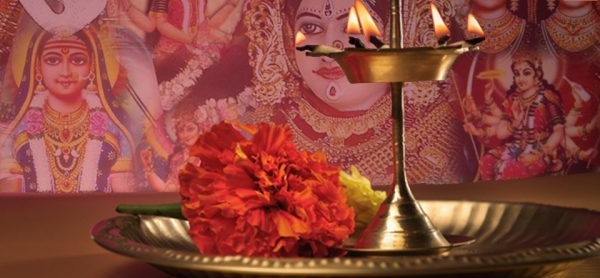
- The most vital aspect when it comes to venerating the family deity is the things needed to conduct the puja. You will require four raw coconuts, red cloth, supaaris, items for shringar, betel leaves, earthen lamp with ghee, kumkum, haldi, sindoor, mauli, five kinds of sweets, poori, kheer, halwa, chana, batasha, kapur, janeu, and panchmeva.
- Make sure that the sindoor, haldi and kumkum are not applied to the same coconut.
- You need to present five kinds of sweets to your family deity. Also, give them halwa-kheer.
- After the puja has concluded, offer the prasad to only family members and not to outsiders.
- You can recite the mantra of Goddess Durga or Goddess Kali while performing the puja. You should also chant the mantra devoted to Lord Shiva.
- As per custom, unmarried girls cannot participate in this puja.
- We need to place a clean red cloth and position the image of the Kuladeva/Kuladevi over it. Ignite the lamp, offer gugal, dhoop and flowers. Conduct the havan. Present churma baati, coconut, sweets and makhana.
Problems families face for not performing Kuladevata Puja
- Initially, there won’t be any issues as the forefathers may have conducted pujas for a longer duration.
- Problems state after six years when the shield offered by the Kuladevata expires.
- Only with regular pujas will you be able to increase the power of the Kuladevata.
- There could be accidents in the family, untimely death, reduction in wealth, legal issues, issues with the family members, bad-mannered children, and so on.
- Negative energy will start to live in such homes.
Benefits of Worshipping Kuladevata Puja
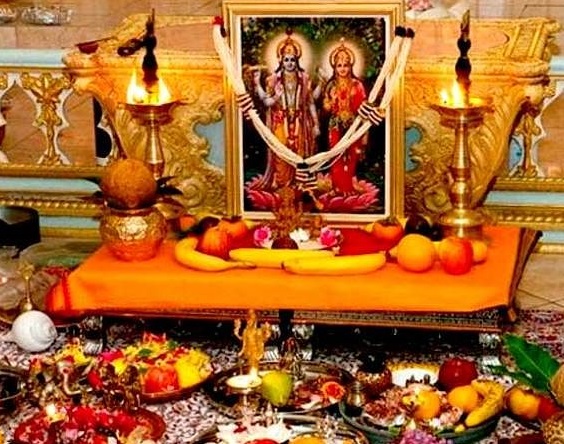
- The chief benefit of the puja is that Kuladevi and Kuladeva form a Raksha Chakra (protective ring). This assists the family in keeping out all kinds of negative energy.
- Protection - no negative energy will be permitted to pose a threat or attack the family.
- It will help unite the family.
- The family will see spiritual as well as religious progress.
- Guarding against spirits and other supernatural beings.
- The family will see peace and success.
- The family will see a good harvest and have healthy children.

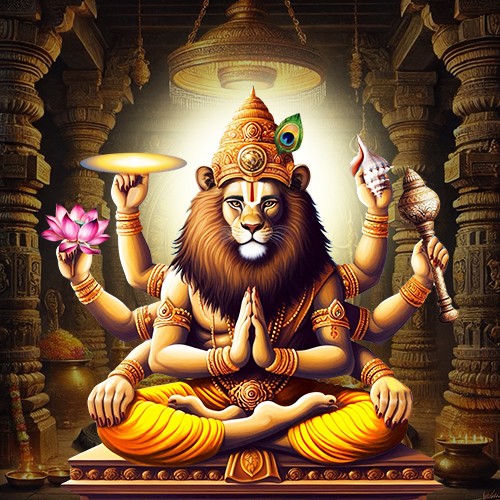
-in-Astrology.jpg)
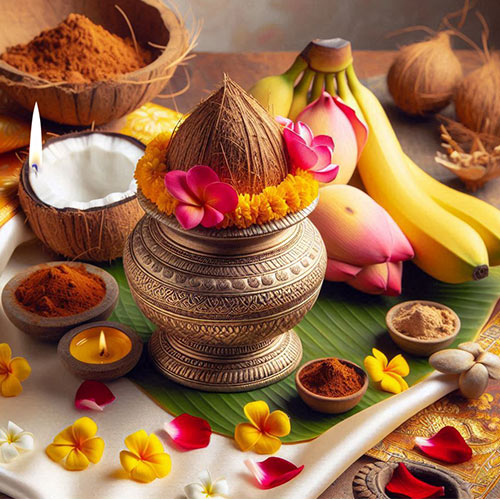



.jpg)


Deepali
|February 15, 2025
Want to know kuldevi
Krunal Patil
|February 12, 2025
कुलदेवी कुलदैवत
Satish Kumar
|December 11, 2024
Sir/madam, My name is Satish Kumar surname is shrungavarapu i didn't know my kuladevi iam eagerly waiting for know this because I facing lot of problems in life please find solution for this.
Sanjay kantilal somaiya
|November 13, 2024
Kuldevi kon chhe ?
Pappuram daukiya
|October 16, 2024
Daukiyon ki kuldevi maa konsi hai
Arindam sarkar
|August 28, 2024
Sir, amar nam Arindam sarkar, kayostho,madgollo gotro,sinho rashi ...doya kore amake amar kuldevta k janan...amar poribar somossai ache.... dhonyobad
SUDHIR BOBADE
|August 15, 2024
I WANT TO KNOW MY Gotra AND MY KULDEV AND Kul Swamini. SUDHIR ABASAHEB BOBADE. 9987580045
Sita Kanta Sahoo
|August 15, 2024
Iam teli caste gotta nagasya but i dont know our kuldavi kindly tell me name of my godes
Tushar Dhar
|July 29, 2024
Amar gutra Alimyan. Ami kul devotar nam janina . Ki kore janbo.
Dharmesh Kherade
|July 25, 2024
I am mahrastian surname Kherade and date of birth 24-07-1976-surch in kuldevi
Ajay Begraj
|July 14, 2024
Sir, my name is Ajay Begraj my gotra is Begraj i belong to Jalandhar virka pind can you tell my kuldevi and kuldevta
Maulik
|June 24, 2024
I want to know my kuldevi and kuldevta
Payal
|May 16, 2024
Sir my name is payal and my gotar is bhuriya ( jaat caste) sir I don't know kuldevi and kuldevta of my family so sir please tell me about my family's kuldevi and kuldevta
Prashant Gautam
|March 28, 2024
I am Brahmin and my parents says my gotra is Pradhan and my uncles say my gotra is Gautama...who is my kuldevi. I don't know anything